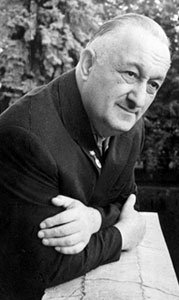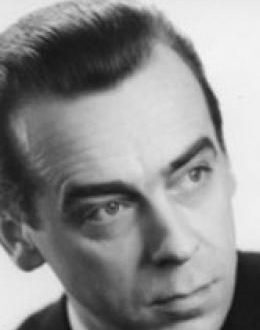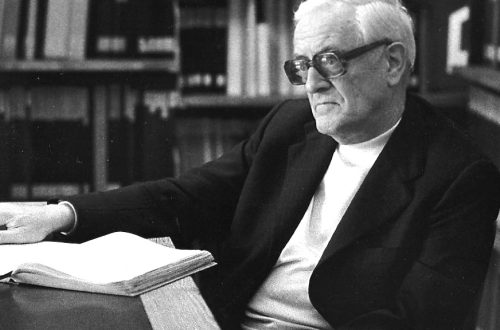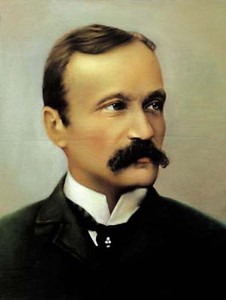
Arrigo Boito (Arrigo Boito) |
Arrigo Boito

Boito is known primarily as a librettist – co-author of Verdi’s latest operas, and only secondarily as a composer. Not becoming either a successor to Verdi or an imitator of Wagner, highly valued by him, Boito did not join the verismo that was emerging in Italy at the end of the XNUMXth century with its interest in everyday life and small form. Despite the length of his creative path, he not only remained in the history of music as the author of the only opera, but indeed, until the end of his life, he never completed the second.
Arrigo Boito was born on February 24, 1842 in Padua, in the family of a miniaturist, but was brought up by his mother, a Polish countess, who had left her husband by that time. Having an early interest in music, he entered the Milan Conservatory at the age of eleven, where he studied for eight years in the composition class of Alberto Mazukato. Already in these years, his double talent manifested itself: in the cantata and mysteries written by Boito, written at the conservatory, he owned the text and half of the music. He became interested in German music, not very common in Italy: first Beethoven, later Wagner, becoming his defender and propagandist. Boito graduated from the Conservatory with a medal and a cash prize, which he spent on travel. He visited France, Germany and his mother’s homeland Poland. In Paris, the first, still fleeting, creative meeting with Verdi took place: Boito turned out to be the author of the text of his National Anthem, created for an exhibition in London. Returning to Milan at the end of 1862, Boito plunged into literary activity. In the first half of the 1860s, his poems, articles on music and theater, and later novels were published. He becomes close to young writers who call themselves “Disheveled”. Their work is permeated with gloomy moods, feelings of brokenness, emptiness, ideas of destruction, the triumph of cruelty and evil, which was then reflected in both of Boito’s operas. This view of the world did not prevent him in 1866 from joining the campaign of Garibaldi, who fought for the liberation and unification of Italy, although he did not take part in the battles.
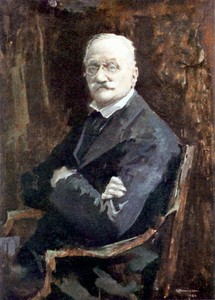
The most important milestone in the life of Boito is 1868, when the premiere of his opera Mephistopheles took place at the La Scala theater in Milan. Boito acted simultaneously as a composer, librettist and conductor – and suffered a crushing failure. Discouraged by what had happened, he devoted himself to librettism: he wrote the libretto of Gioconda for Ponchielli, which became the composer’s best opera, translated into Italian Gluck’s Armida, Weber’s The Free Gunner, Glinka’s Ruslan and Lyudmila. He devotes especially much effort to Wagner: he translates Rienzi and Tristan und Isolde, songs to the words of Matilda Wesendonck, and in connection with the premiere of Lohengrin in Bologna (1871) writes an open letter to the German reformer. However, the passion for Wagner and the rejection of modern Italian opera as traditional and routine is replaced by an understanding of the true meaning of Verdi, which turns into creative cooperation and friendship that lasted until the end of the life of the famous maestro (1901). This was facilitated by the famous Milanese publisher Ricordi, who presented Verdi Boito as the best librettist. At the suggestion of Ricordi, in early 1870, Boito completed the libretto of Nero for Verdi. Busy with Aida, the composer rejected it, and from 1879 Boito himself began work on Nero, but he did not stop working with Verdi: in the early 1880s he redid the libretto of Simon Boccanegra, then created two librettos based on Shakespeare – Iago ”, for which Verdi wrote his best opera Othello, and Falstaff. It was Verdi who prompted Boito in May 1891 to once again take up Nero, which had been postponed for a long time. 10 years later, Boito published his libretto, which was a major event in the literary life of Italy. In the same 1901, Boito achieved triumphant success as a composer: a new production of Mephistopheles with Chaliapin in the title role, conducted by Toscanini, took place at La Scala, after which the opera went around the world. The composer worked on “Nero” until the end of his life, in 1912 he took on Act V, offered the main role to Caruso, who sang Faust in the last Milan premiere of “Mephistopheles”, but never completed the opera.
Boito died on June 10, 1918 in Milan.
A. Koenigsberg



